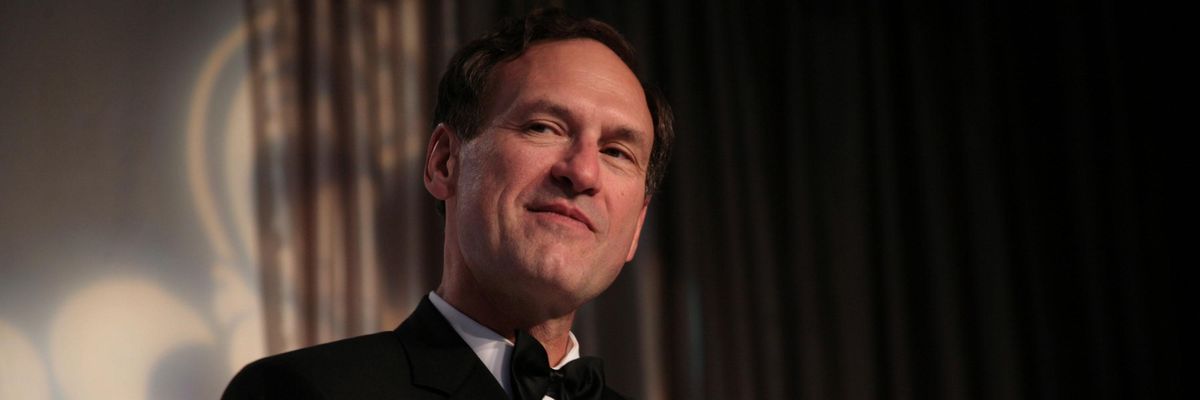The U.S. Supreme Court yesterday announced that an internal investigation failed to identify the person who leaked a draft of the Court’s opinion in Dobbs v. Jackson Women's Health Organization — the opinion that overturned Roe v. Wade, the 1973 decision that had established a constitutional right to abortion.
The Court’s marshal, Gail A. Curley, who oversaw the inquiry, said investigators had conducted 126 formal interviews of 97 employees, all of whom had denied being the source of the leak. (In a one-page statement accompanying the report, Michael Chertoff, a former secretary of the Department of Homeland Security, asserted that Curley’s team had conducted a thorough investigation and he could not “identify any additional useful investigative measures” they should have taken.)
This shouldn’t end the matter.
A modern Sherlock Holmes might well conclude that the leaker was … Justice Samuel Alito, Jr.
First, it’s unlikely any of the justices was interviewed. The report said all witnesses were told they could be dismissed if they refused to answer questions. That’s a dead giveaway: Supreme Court justices cannot be dismissed from their jobs.
Even if uncontroverted evidence emerges that Alito leaked the Dobbs decision, there’s nothing the Supreme Court could do to discipline him.
Second, Alito had a motive for leaking. He wrote the draft in Dobbs and got four other justices to tentatively sign on. He presumably wanted to lock them in. Leaking the draft was a way to do so.
Third, Alito is already under suspicion for leaking another draft Court opinion that he authored, which marked another triumph for the religious right.
On November 19, the New York Times quoted Christian minister Rob Schenck as claiming that in 2014 Alito divulged the outcome of a Supreme Court case known as Hobby Lobby, which he authored — weeks before the opinion was released to the public. According to Rev. Schenck, Alito’s leak occurred when he and his wife were dining with a couple who were secretly collaborating with Schenck. Hobby Lobby allowed religious exemptions to the Affordable Care Act’s contraceptive coverage requirement for certain for-profit corporations.
Alito has denied the allegation.
Even if uncontroverted evidence emerges that Alito leaked the Dobbs decision, there’s nothing the Supreme Court could do to discipline him. The Court has no code of conduct or rules of ethics. (Think Clarence Thomas.) Partly for this reason, public trust in the Supreme Court has been plummeting.
The last Congress introduced the Supreme Court Ethics, Recusal, and Transparency Act which would, among other things, require the Court to adopt a binding code of conduct. With Republicans in control of the House, the current Congress is unlikely to do the same.
But the Court need not await Congress. If Chief Justice John Roberts doesn’t want to be remembered as the Chief who allowed the Court to drown in disrepute, he will take the lead in creating clear ethical rules that all Supreme Court justices will swear to abide.
